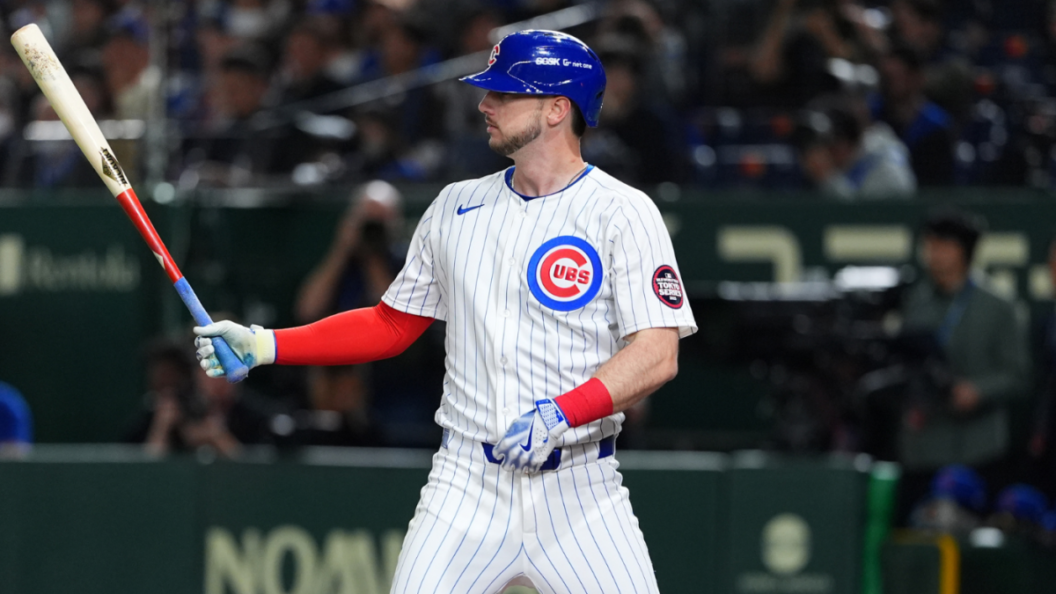Blue Jays Sign Vladimir Guerrero Jr. to Landmark Contract; Impacts Free Agency Landscape
In a move that has sent shockwaves through Major League Baseball, the Toronto Blue Jays have signed All-Star first baseman Vladimir Guerrero Jr. to a record-breaking 14-year, $500 million contract extension. This deal is the largest in Blue Jays history and positions Guerrero as one of the highest-paid players in the sport. Although the extension secures Guerrero’s future in Toronto, it prompts questions about the broader ramifications for other teams, particularly in terms of free agency and player retention.
Tucker’s Rising Profile Among Free Agents
Following Guerrero’s massive deal, Kyle Tucker, a right fielder for the Chicago Cubs, emerges as a pivotal player to watch in the upcoming free agent cycle. Having been acquired from the Houston Astros during the offseason, Tucker is anticipated to explore free agency after the 2025 season. Despite the Cubs’ potential to extend Tucker’s contract, indications suggest that ownership may not prioritize such an endeavor.
Tucker has demonstrated significant growth since 2021, making three consecutive All-Star appearances and amassing remarkable statistics. In the previous season, he posted an impressive .289 batting average, with a .408 on-base percentage and 23 home runs, all while facing a setback due to injury. This season, early statistics show Tucker hitting .319 with an outstanding .458 on-base percentage in just 12 games.
The Chicago Cubs currently have one of the league’s most potent offenses, averaging 6.4 runs per game and boasting a team OPS of .776. Tucker is recognized as the key factor driving this turnaround, which is critical as the Cubs strive to compete in a National League filled with formidable rivals.
Cubs’ Strategic Decisions Under Scrutiny
Given Tucker’s contributions, the question arises: Will the Cubs extend his contract before he reaches free agency? Critics point out that the club’s management, under president Jed Hoyer, faces challenges from ownership priorities that seem to emphasize profit over player investment.
This assessment is reinforced by the Cubs’ current payroll status. Ranking 12th in MLB starting salaries this season, the Cubs are over $24 million less than their previous year’s payroll and fall short of expectations for a franchise of their stature, particularly given the high market potential in Chicago.
The environment remains contentious with reports that ownership’s focus is shifting away from championship aspirations towards fiscal prudence. Historical comparisons illustrate a troubling trend: teams such as the New York Yankees, Los Angeles Dodgers, and New York Mets have leveraged their financial power to secure elite talent, while the Cubs have not been as aggressive or competitive in the market since their World Series win in 2016.
Market Analysis and Future Implications
The implications of Guerrero’s new contract and the surrounding circumstances reflect a significant shift in the market dynamics of baseball. As teams such as the Mets and Rangers continue to make headlines with lucrative contracts for star players, the Cubs’ hesitation to follow suit might hinder their competitive edge. The recent contracts for Juan Soto, Francisco Lindor, and Mookie Betts, all sealed substantial financial commitments, showcasing the willingness of other franchises to invest in top talent.
With free agent dynamics so heavily influenced by contracts like Guerrero’s, Tucker’s situation is emblematic of larger issues within the league, including competitive balance and player health. The Cubs’ capacity to re-sign Tucker could dictate not only their immediate competitiveness but also their reputation as a viable destination for top-tier talent moving forward.
Outlook: Navigating Uncertainty Amid Competitive Landscape
As the Cubs weigh their options, the looming uncertainty surrounding their potential decision to extend Tucker raises serious questions about the franchise’s direction. A failure to secure Tucker could lead to dire consequences for the team’s competitiveness within a tightening National League landscape that includes established contenders seeking glory.
Ultimately, the decisions stemming from the Guerrero contract will resonate throughout the league, influencing not only the fortunes of Tucker but potentially impacting the strategic direction of franchises as they assess their financial commitments in the era of player extensions and high-stake trades.









